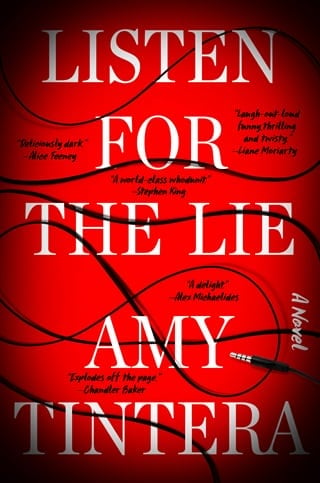31 Royal Manor of Otford, Kent, January 1349
31
Royal Manor of Otford, Kent, January 1349
Jeanette admired the silver cup Edward had just presented to her as a New Year's gift. Her name, ‘Jeanette', was engraved upon it, and beneath it a little dog in the shape of Nosewyse in hot pursuit of a rabbit. He had bestowed fine New Year's gifts on others too, including a silky grey palfrey for his mother, and cups and gems for his siblings and friends, but his thoughtfulness to herself melted her heart.
‘For my favourite cousin,' he said, his eyes bright with pleasure, and he kissed her on the lips. It was an easy thing, not beyond friendship, and made her feel happy and warm and loved – emotions that were sparse in her life.
‘Thank you, sire, I shall drink from it every day and think of you,' she said.
‘And I shall think of you drinking from it, and be glad,' he replied, and moved on to present a pair of embroidered gloves to William, sitting beside her. William received them with gratitude, and showed them to her.
‘They are very fine,' she said with polite courtesy. ‘They will suit you well, my lord.'
They had reached an understanding. In public they fulfilled the roles expected of them as the Earl-apparent of Salisbury and his wife, performing with dignity, and distance. The former heat and violence had departed their relationship, leaving impersonal strangers trapped in a marriage neither of them desired. But William refused to actively defy his mother and grandmother, and so they waited. If it came to the worst and the Pope rejected Thomas's petition, this, Jeanette knew, was the best they would ever have of their union.
Jeanette had remained at court since the summer in the Queen's household, mostly at Langley with the royal nursery. For the winter feast, the court had moved to Otford, everyone dwelling in fear of the great pestilence and wondering where it would strike, and if they were next.
The King had been making plans to renew his campaign against the French, but the truce had been extended because of the devastation wrought by the pestilence. So many had lost their lives. Fields were going unharvested and untilled. New graveyards and cemeteries were being opened to accommodate the dead, often in mass graves. Along with Princess Joan and the baby William, the Archbishop of Canterbury had succumbed to his years, and his successor had died of the pestilence before he could assume office so they had no senior ecclesiastical leader in England. Sometimes Jeanette felt as though they were sailing off the edge of the world in a rudderless ship.
She had heard briefly from Thomas, who had been serving in Calais with the King's troops but had sent her a message via her brother, that all was progressing well, and she should be hearing from Master Heath on a few final matters and that Master Beverley might want to speak with her again to clarify a few minor details. That had been in late autumn, and she had heard nothing since. Thomas and Otto had then been sent home to their family's estates, and the court was in a diminished state because of the pestilence. For all, it was a matter of waiting out the sickness and hoping that God would be merciful.
Master Heath finally arrived at Otford to talk to Jeanette. He looked worn and tired, his features drawn, but he was stoical as he sat down with her to go over her testimony again. Once more, a little impatiently, she gave him her evidence, and swore to its truth.
Master Heath pursed his lips and consulted his notes. ‘It emerged at the court hearing that you had been with child when you wed Messire Holland, yet you said nothing of this to me. Is this true?'
An icy burn shivered her spine and she gripped the edge of the table, feeling dizzy. Master Heath looked round to summon assistance.
‘No,' she said quickly, ‘I am all right. It is a memory I have tried and tried to forget. I did indeed believe myself to be with child and it was one of the reasons for our marriage. The Countess of Salisbury gave me a herbal tisane to balance my humours, and it brought on my flux. The Countess wished to avoid a scandal, for she was my guardian in lieu of my mother, and she wanted me for her own son because of my royal connections and dowry. She and my mother turned rumours of Thomas's death on crusade into truth to further force me into marriage with William Montagu. If I must, I shall travel to Avignon myself and state all this in person.'
The clerk was staring, pen poised. Master Heath nodded to him. ‘Write this down,' he said.
Jeanette stared at her tightly clenched fists, her eyes prickling.
‘I think you will win your case,' Master Heath said. ‘The opposition is standing on quicksand, and the evidence for the marriage being valid has the greater veracity in the scales. I was not certain at the outset, but now I am convinced.'
‘Neither I nor my true husband would have put ourselves through all of this danger and unpleasantness had we not been truly wed,' Jeanette replied. ‘My husband could easily have found a new bride with the ransoms he gained in battle had he wished, and even if I am the King's cousin, I would not be worth the fight he has had to sustain to come this far. For my part, I could have dwelt in power and contentment as the future Countess of Salisbury, and been feted at court, instead of being locked in my chamber for months on end.' Her voice grew fierce with determination. ‘Every day I pray to God to finish this soon, and grant that Thomas and I may be together. We shall never stop fighting until justice is done – and I hope that is true for our lawyers also.'
‘Of course, my lady,' Master Heath assured her. ‘You are courageous, and you deserve that courage in your legal representation.'
He gathered his materials together and was bowing to leave with his scribe when Katerine walked in. Jeanette recoiled. She wondered if the Dowager Countess had been listening at the door. Master Heath bowed urbanely. Katerine inclined her head.
‘Stay a little while, Master Heath,' she said. ‘I have some new sweet wine of Cyprus you would enjoy.' She firmly took his arm and ushered him to sit down again. ‘I know you are here to take my daughter-in-law's deposition, and I will not interfere with that, but I thought you might have news of the world beyond the court. Is it truly as bad in France as we hear?'
He had no choice but to accept her hospitality, although his body was stiff and self-contained.
‘My lady, I fear so,' he replied. ‘Many people have been struck in every part of the land through which I have travelled, and all manner of society in the same way as here.'
‘Has the work in Avignon been affected too?'
‘It is as anywhere else, my lady,' he answered cautiously, ‘but even so it continues – as must we all continue.'
She looked thoughtful, and Jeanette wondered what she was brewing. The wine arrived, presented in a rock crystal flagon that displayed the golden-tawny liquid to its best effect.
‘You are a stout-hearted Englishman, Master Heath,' Katerine said as her steward presented him with a decorated glass goblet. ‘Indeed, a learned attorney of many years' standing.'
‘I do my best, my lady, and to represent my clients to my utmost ability.'
He took a swallow of wine. Katerine tasted hers daintily.
‘I am sure you do – but do you not find your long journeys in such difficult times worrying and wearisome? Do you not think it would be better if the hearings were held in an English ecclesiastical court?'
Jeanette sat bolt upright. So that's what she was about! Trying to persuade the attorneys to move the case to England where she could exert her influence and sway the outcome. She cast a glare at Katerine, who ignored her.
‘I do not know about that, madam,' Master Heath said. ‘The papal court has dealt with the case thus far, and Cardinal Adhemar is familiar with the material. Certainly, the journeying can be wearisome, but I am accustomed to long days of travel, for it has ever been thus. Besides, the papal court, even if it moves slowly, is better than the English one in these matters since it delivers the highest judgements that cannot be disputed. The Pope is God's representative on earth and there is no higher authority, which has to be a sound reason in a case such as this.'
Jeanette smiled with satisfaction at his reply, but then felt a frisson of unease, for Katerine too was smiling. ‘The papal court is better? That is your opinion, sir?'
Master Heath inclined his head. ‘I would say so, madam, in my experience, and I have sat on many benches and examined many cases. I consider it will be fruitless to move the case to England and would do more harm than good.'
‘Well, that is a considered opinion, sir, and I thank you for it. You have been very helpful.'
He gave her a slightly puzzled look, and having finished his drink, rose to take his leave. ‘I do not know in what way, madam, but I am glad to have been of service.' He bowed to Jeanette. ‘Thank you, my lady, and I hope to have news for you very soon. I pray God to keep you safe.'
‘And you, sir,' Jeanette replied, feeling unsettled, for she was certain that Katerine was scheming to no good intent. She looked like the cat that had stolen the cream from the dairy.
 Fullepub
Fullepub 



